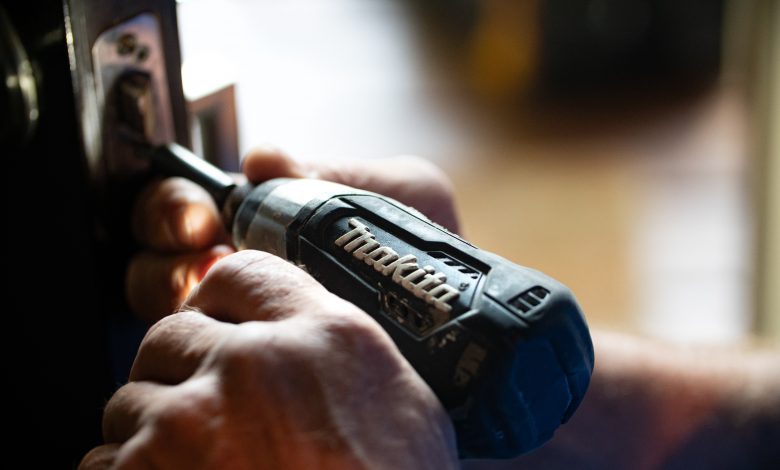How to Lower Insurance Premiums with the Help of a Home Improvement Loan

Most people want to make their homes more comfortable and safer, and the best way to do that is through home improvement loans. Still, you may wonder about your homeowner’s insurance and how the premium could be affected by what you do or change in the house. Many people have cut their insurance premiums by adding security systems and making renovations. However, it’s also possible to raise your premiums by changing certain things.
Install a Security System
Many insurers are going to offer you a discount on your premiums for homeowners insurance if you install a security system or burglar alarm. Of course, the amount you save is based on how good the security system is and what it can do. For example, you might save more money on your insurance premium if you use a third-party monitoring system for the cameras.
Often, you are going to need proof that the system was installed by a professional. The insurer might ask for an alarm certificate to show that it communicates with a private security company or the local police.
The amount of money you can save is going to vary, but discounts for stand-alone systems can be upwards of five percent. Add up to three percent if you have a full security system with cameras and third-party monitoring.

Improve Things Around the Home
Home improvement loans can often be used for anything in or pertaining to the house. These can include the heating, plumbing, and electrical systems. Plus, if you upgrade these things with money from the loan, you are sure to get a discount from your homeowners insurance company. This is because your house is less vulnerable to flooding from a burst pipe, fire from bad wiring, and frozen pipes caused by a loss of heat during winter.
Your discount may vary, but you can expect to cut up to six percent off your premium if you replace the plumbing during a remodeling session. You can also get two percent off if you upgrade the electrical system completely. Of course, you should talk to your insurer before taking out a loan and making such improvements to find out if these discounts are available and what your premiums might be if you do make the changes.
Replace Your Roof
Many states are in areas prone to hail, hurricanes, and other damage. Therefore, you may want to consider a home improvement loan to replace the roof with one that is sturdier and can withstand such conditions.
This can help you get a reduction on your homeowner’s insurance. However, it is imperative that you talk to your insurer first to find out which type of roof is going to get you a discount or the best discount. Often, the insurer is going to trim the premium for you if you have a fortified roof that is made of a stronger material. That way, if you live in an area prone to wildfires, tornadoes, and hurricanes, you can protect your assets.
The insurer is likely to offer a discount because you are doing your part to protect your stuff. There is less of a chance that the company is going to have to pay on a claim because you lost everything when it was caused by Mother Nature.
Discounts can range but might be as high as 35 percent when you install an impact-resistant roof. This may only apply if you live in a state prone to natural disasters. Likewise, your insurer may only give you a discount for specific products and from particular manufacturers. Therefore, it is best to talk to your insurance carrier before making the replacement. Some insurers may list this information on their websites, making it easier to find out which roofing materials you can use.
For example, State Farm offers discounts on roofs made of slate shingles, metal, clay tiles, composition shingles, and concrete tiles for policyholders in Canada and 26 different US states.
Another way to get a discount if you live somewhere prone to windstorms is to add a roof clip or a similar device.
Add Detection and Sensing Equipment
While it depends on where you live, installing sensor alarms and smoke detectors that can detect temperature change and gas leaks might reduce your insurance bill each month.
You could also add a freeze alarm to your home. If the temperature drops significantly (past a preset number) when you aren’t home, it can contact you or another designated person by text, email, or phone. Then, the heat settings can be adjusted appropriately.
Smoke detectors are often required in most states, so they aren’t going to provide you much of a discount if any. Still, some detection systems are more high-tech and do more than detect smoke. Some of them can tell if a fire is present and seal off the area or use an integrated sprinkler system to contain it, thereby reducing the damage done to the property and your possessions.
Another option is to install a water-leak detection system. You are instantly notified of a potential plumbing leak, which can save money on your water bill and ensure that you don’t have significant water or mold damage with which to deal.
It is possible to save up to six percent with the right alarm system. Plus, with small home improvement loans, you can easily pay for the unit and installation. That way, you get the money you need for a better system and might save money on your home insurance, too.
Buy and Install a Generator
Did you know that you could buy a generator and have it professionally installed on a home improvement loan? These loans are designed to be used for anything that can be installed on the home or used for the house to make life easier and more comfortable.
Having a working generator is also highly beneficial to you because anything in the house that runs on electricity can still operate during a power outage. These can include dehumidifiers, sump pumps, refrigerators, and air conditioning/furnaces.
When you maintain those systems, it reduces the likelihood of costly repairs and insurance claims. For example, if your pipes burst or the sump pump goes out and floods your basement, it is going to cost a lot to repair. Just remember that homeowners insurance only covers flooding from a home’s system. If mud or water comes in from outside, it isn’t covered unless you have flood insurance.
Plus, you are going to find that the insurance company is going to be happy that there is less of a chance it is going to have to pay out a claim. Therefore, you could get a hefty discount of up to ten percent on the property part of your policy. Of course, it does depend on where you live. Those people who live in areas prone to blackouts or severe storms may see larger discounts than those who do not.
Remove Your Wood-Burning Stove
You may be surprised to know that many homes are still heated primarily by a wood-burning stove. In fact, you may use one to heat your house. This is considered more dangerous than a traditional furnace, and you’re likely to pay more in insurance premiums because of it.
The risk of fire goes up with such a heating source, so many insurance companies charge you more or may not insure you at all. Removing it can help you save up to $150 on your premium, though this depends on your provider.
You could call on a professional who can remove the wood-burning stove and install a new furnace system. Home improvement loans can be used on both accounts.

Renovations That Could Raise Premiums
While your goal is probably to pay less for homeowner’s insurance, it is important to know that not all renovations are created equal. Your premiums might not raise if you want to add new fixtures or a coat of paint. Still, it is a good idea to talk to your insurance carrier before making any changes.
Sometimes, that house improvement you make is going to boost your home’s value by a lot. However, that also means your insurance coverage is now inadequate. If something happened and there was extensive damage, you might be vulnerable to a loss where the insurer can’t give you the full amount to cover the damage and lost property/items. These can include:
A New Pool
Installing a pool is likely every homeowner’s dream, and it could also make you highly popular with everyone on the block. However, from an insurance standpoint, your home is now riskier to insure.
Most insurance companies label a pool as an attractive nuisance. Though everyone wants to use it, it also increases your loss exposure. There are many factors at play here, too.
For example, what happens if the pool is damaged and leakage occurs? It could cause significant water damage or a flood in your yard. You also have to worry about someone getting injured while playing in the pool. This means covering legal expenses and medical costs.
Standard policies come with personal liability protection of about $100,000, but your insurance company might require you to have $500,000, at least.
Of course, you may also be required to have fencing installed, a lock, and so much more. Plus, that isn’t even including pools with a slide or diving board. Then, it could be a bigger hazard.
Home Business Office
While this renovation isn’t likely to cost as much in insurance premiums as a pool, it can raise your bill. Many policies do cover equipment for a home business of up to $2,500, but that might not be enough if you store inventory and supplies there or have specialty machinery.
In some cases, you may need to add a business policy to the home, which can raise your rates significantly. It might be wise to talk to your insurance provider before making the decision to have a home office.
Save Money While Improving Your Home
Renovating your home with home improvement loans can help you be more comfortable and enjoy your surroundings more thoroughly. Still, you do need to focus on how your homeowner’s insurance rates may rise or go down. Also, it is helpful to know that discounts are sometimes available. That way, you make sure you’re getting what you’re entitled to and don’t overpay.



